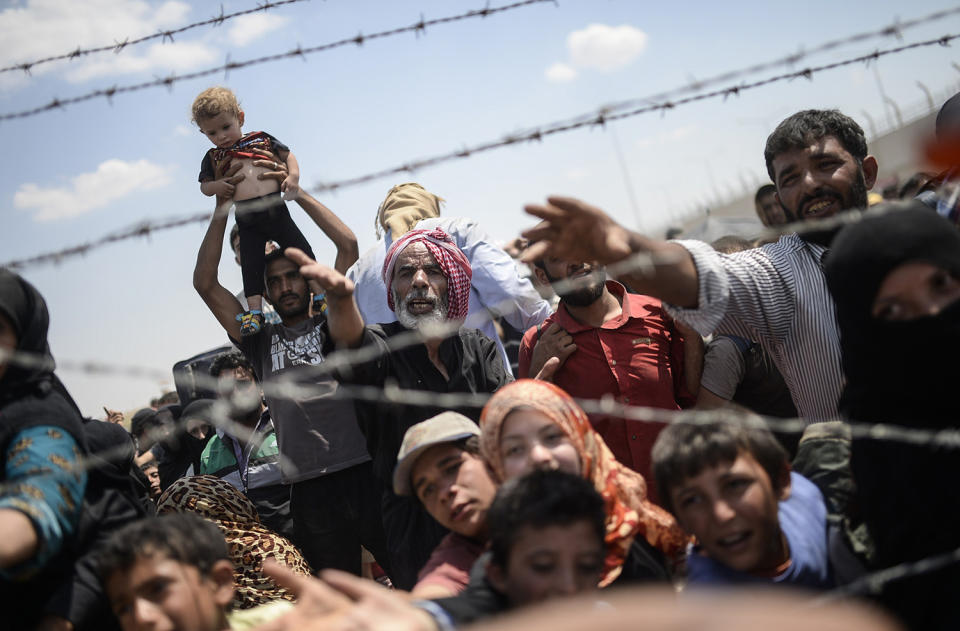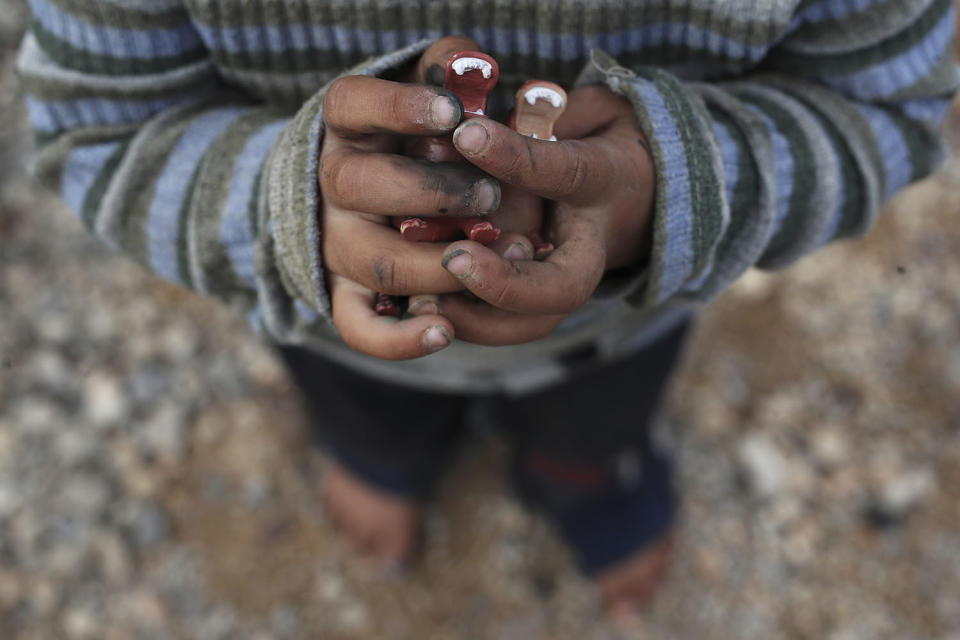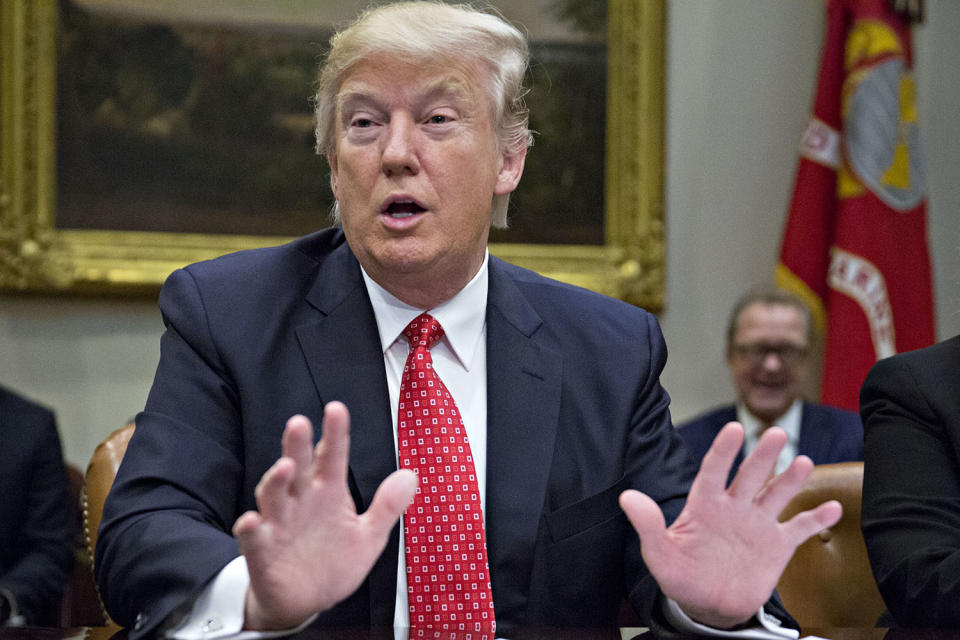Syria’s refugee crisis is also a security nightmare, terrorism experts warn
As the number of Syrian refugees fleeing the civil war climbs well into the millions, there are new warnings from top U.S. counterterrorism experts that the exodus is posing a national security threat far more serious than any the United States and Europe have seen in decades.
“We are witnessing the largest human catastrophe in our lifetimes,” said Ali Soufan, a widely acclaimed former FBI counterterrorism agent and the author of a report being released today to mark the sixth anniversary of the Syrian civil war, entitled “Syria: The Humanitarian-Security Nexus.”
Soufan’s message: The failure of the West to address the conditions of refugees flooding into neighboring countries creates a situation like the one that gave rise to the Taliban and al-Qaida in Afghanistan 25 years ago — with consequences that could potentially be more disastrous.
“There are millions of refugees living in tents. Eighty-five percent of the Syrian children have been affected by the war,” Soufan said in an interview with Yahoo News. “We’ve seen that before. We’ve seen that in Afghanistan, where many Afghani refugee children were recruited in Pakistani refugee camps by extremists, by radical madrasas” — Muslim theological schools — leading to the rise of the Taliban.
That is exactly what is now likely to start happening in settlement camps in Lebanon, Jordan and Turkey, he says, where Syrian refugees, large numbers of them children, are living in squalor, fearful of returning to their homes and increasingly unwanted in the West.

“Today, you have terrorist organizations that are anxiously waiting to recruit these children into their fold, groups like al-Qaida, like ISIS … who basically are the only people benefiting from this disaster,” Soufan said.
The conclusions in Soufan’s report, released by a new nonprofit research center he founded, were echoed by Avril Haines, a former deputy CIA director and until last January deputy national security adviser to President Barack Obama. Haines reviewed the findings for Yahoo News.
“I completely agree,” she wrote in an email to Yahoo News. Not only will failure to address the Syrian refugee crisis destabilize neighboring countries, she said, it “will fuel transnational crime, and will ultimately facilitate the growth of terrorist networks in the region that are a threat to the United States and its allies.”
These warnings come as the Syrian civil war appears to be deteriorating, complicated by the fact that the Trump administration has stepped up air strikes inside the country and is planning to deploy more troops to fight the Islamic State. A U.S. drone strike outside Aleppo last week targeted al-Qaida militants, but local activists and a monitoring group reported that the attack hit a local mosque, killing at least 46 people, many of them civilians. (U.S. officials deny that a mosque was hit.)
Only last month, Syrian President Bashar Assad boasted to Yahoo News in an interview: “As you can see, Damascus is safe today — it’s nearly normal life, not completely.” Yet last week, two suicide bombers struck in the heart of Damascus, killing more than 30 people and injuring at least 100.
Attacks like these are likely to escalate the refugee crisis. More than 4.9 million Syrians have registered as refugees with the United Nations High Commissioner for Refugees — a number five times greater than the total number of Palestinian refugees displaced by the Israeli-Arab conflict of 1948, and the equivalent of nearly a quarter of the entire population of Syria before the civil war began. But that is only half the story: As many as 6.6 million more have been internally displaced within Syria, according to Soufan’s report. Untold others have fled the country but never registered with the United Nations. “You have to look at the amount of refugees that are hiding, living in the streets of Beirut or Istanbul,” said Soufan. “The number is way bigger” than 4.9 million refugees, he argued.

The crisis is being fueled by the brutality of the Assad government, according to Donna McKay, executive director of Physicians for Human Rights, which released its own report on the crisis last week. Entitled “Access Denied,” it documented how the Syrian government was blocking United Nations aid convoys carrying food and medicine to rebel-controlled areas, subjecting its citizens to “slow-motion slaughter — death by starvation and denial of medical care.”
“It’s a vicious weapon of war,” McKay said in an interview, referring to the Syrian regime’s blocking of U.N. aid convoys to besieged areas. She cited “the bombing of clinics, pediatric centers and doctors,” which she called “unprecedented in any conflict we’ve ever seen. … These are apolitical people, these are health care professionals whose ethical duty is to care for people. They are not soldiers.”
The national security threat Soufan warns about in his report calls for a response very different from the crackdown on refugees proposed by President Trump, the former FBI agent says.
“What President Trump is saying is we should not pay attention to [the refugees],” Soufan said. “What President Trump is saying is: ‘These guys are going to come here and be terrorists.’ We’re saying: ‘If we don’t pay attention to them and provide aid — instead of cutting U.S. aid to these programs that are helping these children, instead of cutting our contribution to the U.N., instead of cutting the budget of the State Department,’” the crisis will become much worse.
“Either it’s pay now or it’s pay later,” he added. “If we don’t pay attention to the situation now, we’re going to deal with situations that are way worse than Afghanistan, way worse than the Taliban.”




